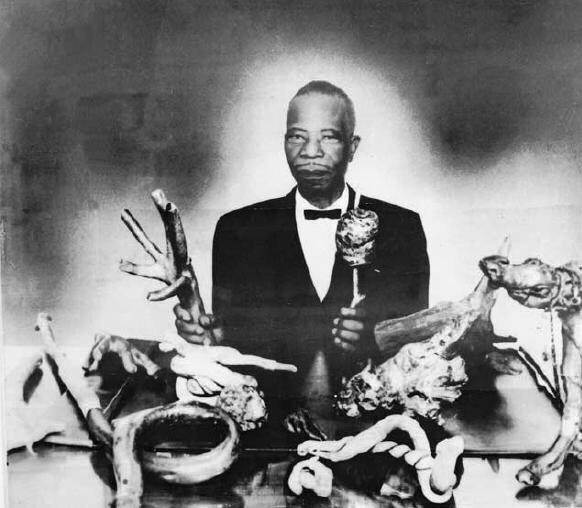Crazy that the Male Revolutionaries wore images of Dessalines.
That story spread like wildfire. Heads in Curaçao were practically naming themselves after Haitians.
[...] The island’s commercial character made for a remarkably open society. This applies not only to its resident population, but also to the fact that a significant proportion of the urban male population consisted of sailors with direct access to the neighbouring colonies and of free and enslaved townsmen working in the harbour and therefore having regular contacts with sailors from foreign places. By definition the openness also extended to the many sailors disembarking in the Willemstad port. Curaçao was a vital hub in transatlantic, but even more so in regional trade carried out with both the Spanish Main and the islands to the North.
Figures for trade connections in the late eighteenth century underline the island’s regional connectedness in no uncertain terms. Roughly half of all ships entering or clearing the port at Willemstad were Spanish, followed by ships from a wide variety of other nations. After 1795, contacts with the British Isles were temporarily cut off because the French occupation of the Netherlands had automatically turned the British into enemies. The share of French ships was modest, yet the few dozen ships visiting Curaçao annually originated predominantly from Les Cayes and Jacmel in southern Saint-Domingue and therefore their crews must have carried the news from the emerging Haitian Revolution with them.4 Seen from this perspective, the frequent allusions of the leaders of the 1795 slave revolt to ‘French liberty’ come as no surprise. [...]
Contemporary accounts of the revolt have left dramatic testimonies of the revolt’s foremost leader, a slave called Tula, who may have been born outside of Curaçao and most likely had spent time in the French Caribbean; he was also known as ‘Rigaud’. In conversations with the Catholic priest Jacobus Schinck, who had been commissioned to convince the slaves to capitulate, Tula reportedly made several statements demonstrating his knowledge of the French and Haitian revolutions. ‘We have been badly treated for too long, we do not want to do anybody harm, but we seek our freedom, the French [Caribbean] blacks have been given their freedom, Holland has been taken over by the French, hence we too must be free’. Drawing on Christian rhetoric as well, Tula told the priest that all people share the same parents, Adam and Eve. Talking about the abuse intrinsic to slavery, Tula added that animals were treated better than slaves – hence the right to revolt.
The 1795 revolt was inspired not simply by the abstract ideals of the Haitian Revolution, but most likely by individuals with an intimate acquaintance with developments both in Europe and in the Caribbean. In the French Caribbean, the metropolitan revolution had fueled hopes for change of the status quo and had exacerbated social tensions, eventually leading to the start of the revolution in Saint-Domingue in 1791. Other French Caribbean colonies seemed on the verge of following this example – between 1789 and 1794, there was a series of revolts in Guadeloupe, Martinique, St. Lucia, and Dominica. From 1795 onwards, the circle widened with revolts and conspiracies in the Spanish Caribbean and Tierra Firme, in particular the Coro region, as well as in the British colonies and in Dutch Demerara and, indeed, Curaçao (Geggus 1997:46-50). In Europe, revolutionary France had proclaimed a law for the Emancipation of slavery in 1794. Moreover, in 1795 French troops had invaded the Republic of the United Provinces and turned it into a vassal state, the Batavian Republic. This news was officially published in Curaçao in May 1795. There was no mention of a French takeover, but rather of the signing of a pact of friendship and alliance between France and the new Batavian Republic (Schiltkamp and De Smidt 1978:508).
As the chapter by Wim Klooster attests, revolutionary ideas circulated widely in the Caribbean, no matter what measures authorities took to stop the flow of information and rumours. In his contribution Han Jordaan indeed demonstrates that the Curaçao government was worried about slaves from Saint-Domingue being sold on the island under the pretence that they were directly imported from Africa. Certainly because of these direct links with Saint-Domingue and the island’s intensive connections to nearby colonies, the Curaçaoan insurgents were well aware of what was going on in the French Caribbean. Priest Schinck heard them singing French revolutionary songs, and one of Tula’s main men, a slave named Mercier, had chosen the nickname Toussaint. The insurgents repeatedly claimed that support from revolutionary Saint-Domingue would be forthcoming – either a strategic boasting or a tragic miscalculation (Do Rego and Janga 2009:66). [...]


 but in to learn.
but in to learn.





